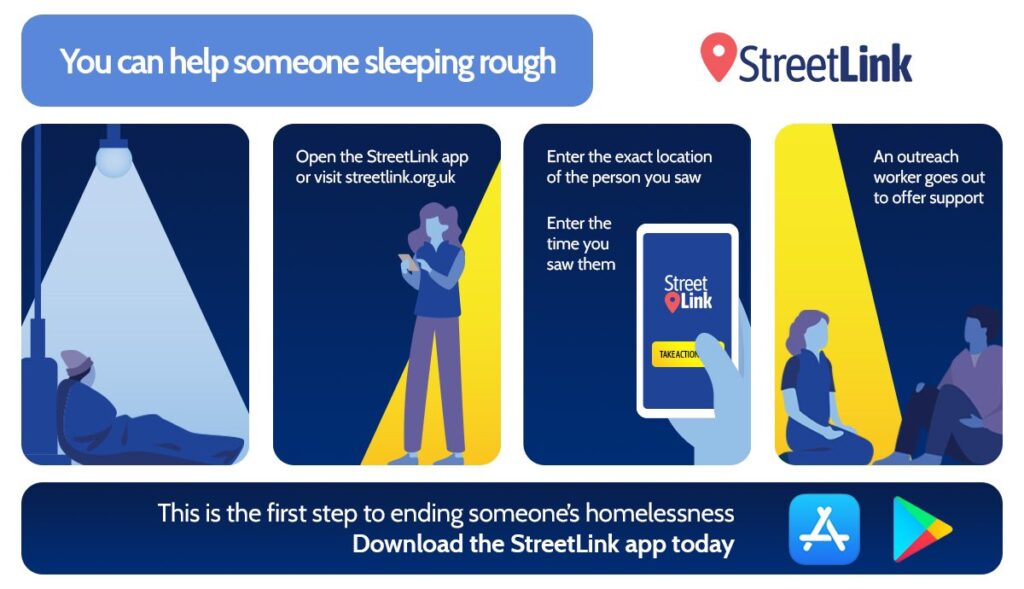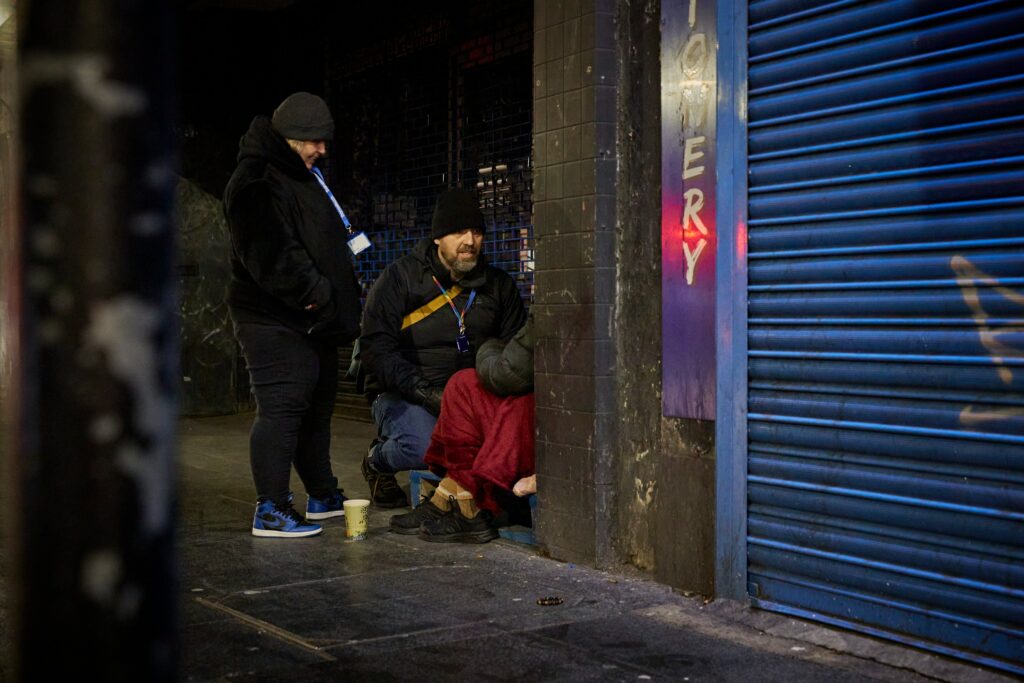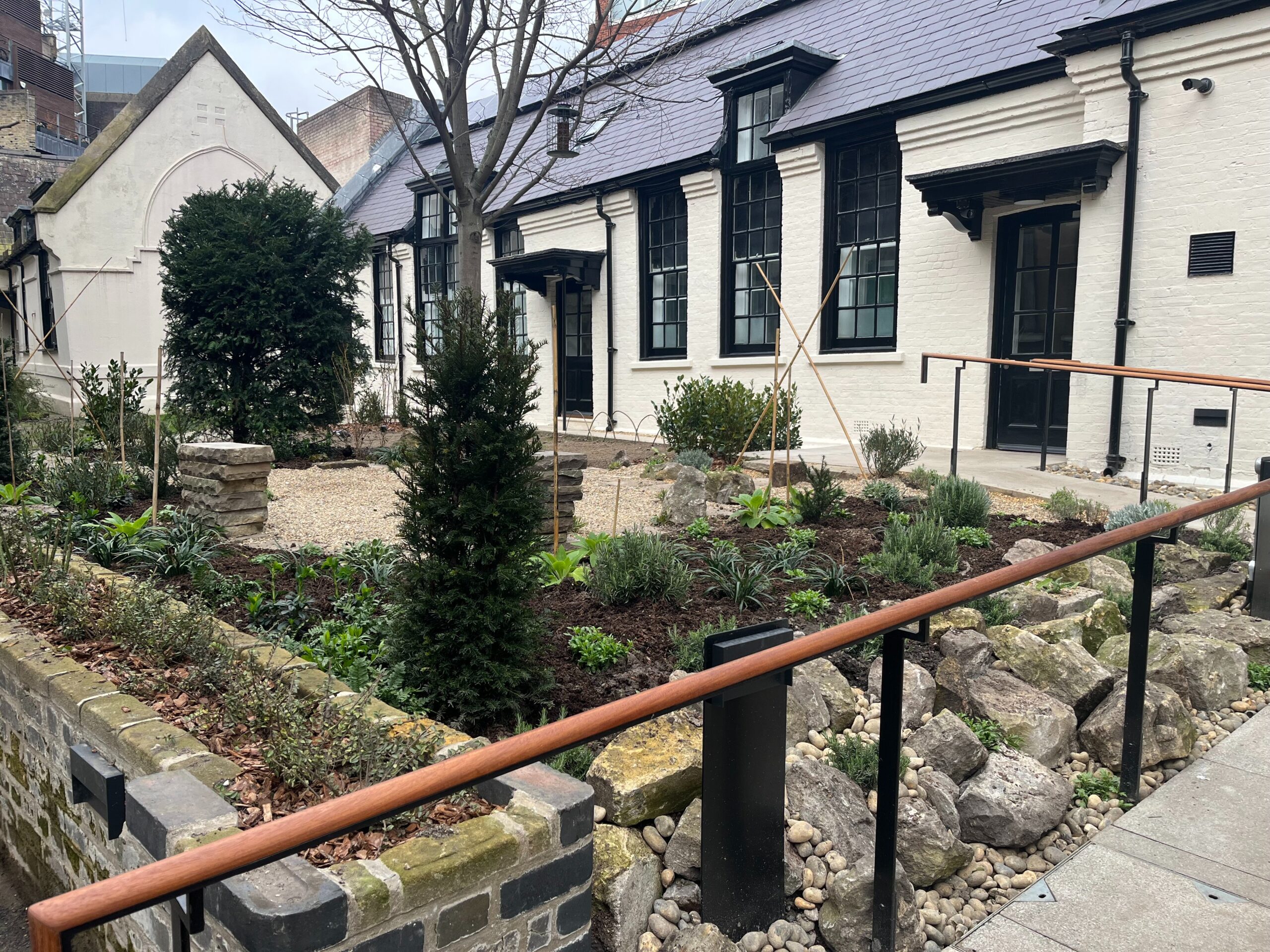Bringing an end to rough sleeping is something I have passionately campaigned for, for many years. It’s something Bishopsgate residents and workers told me they wanted me to focus on as their local Councillor and was a topic that wasn’t well co-ordinated or funded within the City Corporation when I joined. As a result, I joined a group of Councillors to establish the City’s Homelessness and Rough Sleeping Sub Committee to draw together the many complex strands aligned to this topic and to seek a multi-agency approach to reducing the number of rough sleepers on our streets. The ultimate aim was to ensure there is a high quality, dignified service provision for those who fall on hard times and offer long-term pathways towards a safer and healthier future.
One of the real learning moments on this journey for me personally has been distinguishing service provision between homelessness, rough sleeping and begging, which had been comingled. Within the Square Mile, there are comparatively few homeless people because there are far fewer residential properties than other similar areas across the UK. Rough sleeping is a bigger issue because many people see the 24/7 activity in the City as being a safer place to bed down. Professional begging or aggressive begging is another big problem, as we have seen beggars commute into the City daily to beg during rush-hour because they can attract a considerable sum of money, particularly in high footfall areas of Bishopsgate, such as Liverpool Street Station, Broadgate Circle, Exchange Square and Devonshire Square..
The key action streams which have taken place to address this have included:
- the City of London Corporation building more social housing, to reduce the long-term reliance on temporary hostel accommodation
- engagement in a campaign to ask Parliament to repeal the Vagrancy Act, which criminalised rough sleeping behaviours rather than enabling individuals to access support services
- the adoption of multi-agency Operation Luscombe, which implements a 3-stage intervention model on begging, offering drop-in sessions at St Botolph Without Church on Bishopsgate for those who need help before any criminal consequences occur
- the changes in outreach service provision, to include support being given to individuals where they are, particularly basic medical and hygiene care.
- the relocation of assessments from the palatial Guildhall to shop-front facilities, where those who are in need are more likely to come present themselves
- supporting the Mayor of London’s TAP London fundraising initiative which raises money for four charities that work with young homeless Londoners: akt, Centrepoint, Depaul UK, and New Horizon Youth Centre. Donations to the appeal have helped to support the Youth Homelessness Hub, a centre for helping vulnerable young homeless people first established in Hounslow last year, which recently reopened at a new location in north London.
- promoted the StreetLink app – StreetLink – Connecting people sleeping rough to local services (thestreetlink.org.uk) – which allows every member of the public to use the technology to notify local service providers of someone sleeping rough so help can be deployed.

After years of planning and budgeting, this week, the City of London Corporation has welcomed its first service users to a state-of-the-art new Rough Sleeping Assessment Centre. The Square Mile-based residential service opened on Wednesday (13/03) and offers 14 short-stay beds to rough sleepers.
The service is funded by the City of London Corporation and operated by London-based charity Thames Reach. The organisation helps people who are homeless or vulnerable to find homes, build supportive relationships, and lead fulfilling lives.
Thames Reach will provide 24/7 support, 365 days a year, to a range of clients, many of whom will have complex needs. They will work closely with health and social care providers to establish the best routes away from rough sleeping for clients and help them in to permanent accommodation. The assessment centre is situated in a former school building in the grounds of Church of Holy Sepulchre on Snow Hill Court. The building has been completely refurbished and designed with the needs of rough sleepers in mind.
The City Corporation also invests £700,000 every year in a Grange Road hostel run by St Mungo’s in Southwark. It helps some of the Square Mile’s most vulnerable rough sleepers with complex needs.

However, despite all of this good progress, the economic circumstances in the country are such that more people are both making approaches for support or guidance (from from 19 in 2019 to 534 in 2023), needing temporary accommodation (up from 68 in 2019 to 133 in 2023 and rough sleeping (up from 41 in 2019 to 61 in 2023).
Some of those individuals who are rough sleeping in the City of London have no resource to public funds (NRPF), which essentially means that because of their immigration status, they cannot access public funds, including housing benefit, homelessness assistance or social housing. NRPF has effectively barred some people who’ve been forced to sleep rough from accessing vital housing support – even during an unprecedented and deadly health crisis. So supporting charities who can engage with these often vulnerable individuals has also been important in getting them the help they need.
This is an enormously complicated issue, but I hope by re-setting our strategy, improving our multi-agency connectivity in service provision and by taking a long-term view of pathways to a safer and healthier future, we are making a difference.
